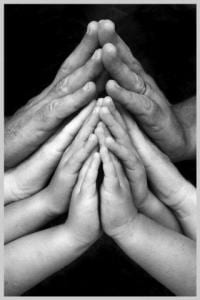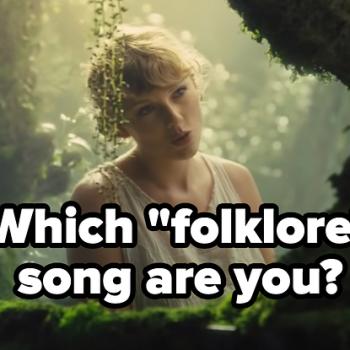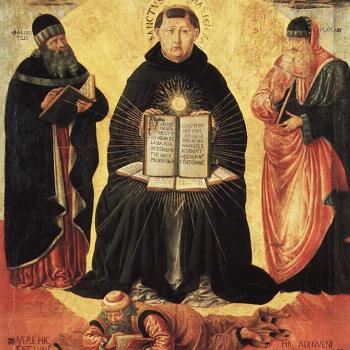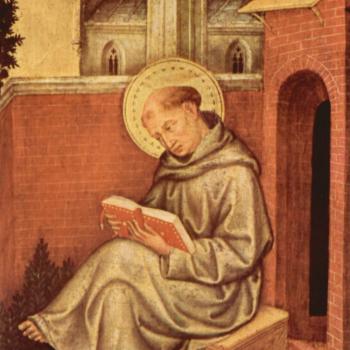This is the 2nd post in which we get to know our Patheos Catholic Writers.

The Catholic Bard’s Guide to Patheos Writers offers a portal to all the writings on Patheos Catholic writers.
Participating Writers in this round are…
1. Light in the West (it’s a Tolkien reference) Following a fool-fire of the Elves to … by Edwin Woodruff Tait
First Post : 9/04 First Revised Post: May 2020 – Current
2. Long Bows and Rosary Beads A Catholic Storytellers Numerous Weavings by Avellina Balestri
First Post: April 2020– Current Website: Fellowship & Fairydust – Love’s First Sight
3. McNamara’s Blog Musings of a Catholic Church HIstorian from Queens, New York by Pat McNamara
First Post 12/08 – Current
Former Patheos Blog: In Ages Past
youtube.com
5. Public Catholic Catholic in the Public Square by Rebecca Hamilton
First Post: 1/12 – Current
6. The Pursuit of Holiness To Become a Saint is the Ultimate Goal by William Hemsworth
First Post: 1/20 – Current
7. The Shoeless Banshee Meanderings Beyond the Pale by Marie Avers
First Post: 3/18 – Current
Pyle of Books
GoodReads Profile
8. Suspended In Her Jar by Rebecca Bratton Weiss
Website: Rebecca Bratten Weiss
GoodReads Profile
9. Sticking the Corners Life it Like You Mean It by Jen Fitz
First Post: 2/14 – Current
Jennifer Fitz Books
10. To Give a Defense by Scott Eric Alt Now Blogs at To Give a Defense
First Post 1/13 Last Post:August 20. 2019
11. Thin Places Opinion on the Struggle of the World to Walk the Path of God by Monsignor Eric Barr
First Post: 5/19 – Current
Website: THE TALES OF CONOR ARCHER
12. Through Catholic Lenses Viewing the World by our Catholic Lenses by Fr Matthew P. Schneider, LC
First Post: 5/18 – Current
13. “Turn. Love. Repeat.” Our Ongoing Conversion and Initiation in Christ By Fr. Stephanos Pedrano
First Post: 12/19 – Current Prince of Peace Abby; A Benedictine Monastery

1. What do you like about being a Catholic Patheos Writer?
Edwin Woodruff Tait
I like having the chance to reach a broader audience, and being part of a diverse community of bloggers (both on the Catholic channel and beyond it) who care about religion. (That includes the atheists.)
Avellina Balestri
I enjoy the general Patheos Layout. Both On the website and just the fact that it is very diverse. It has a lot of different voices and can get a lot of different types of exposure then I might be used to with just my own followers. This Broadens it out. People who might not ordinarily read stuff that I write. That is one of the nice things that Patheos offers is the opportunity is to widen your sphere of influence and just get new experience and new interactions with different types of people and different authors.
Pat McNamara
I like being part of a writing community, particularly a Catholic writing community. Writing can be a lonely job, as George Kennan said, and it’s great that we are doing this bootcamp.
Fellow Dying Inmate
Freedom to express what I have learned, and a real opportunity to learn from terrific writers.
Rebecca Hamilton
Patheos gives me the opportunity to write what I want without being censored and reach a wide audience at the same time.
William Hemsworth
I like writing for Patheos Catholic because there is such a wide range of voices. I’m not saying I agree with everything, but the range of content gives credence to the idea of thought. Us writers are responsible for our own content. Nobody is telling us what to write.
Marie Avers
I love the opportunity to broaden the discussion of what constitutes “Catholic,” since the definition I grew up with was so narrow and rigid, and the general American Catholic Zeitgeist seems to be moving in that narrow direction. The beauty of Catholicism is in its broad welcome and its universality (it’s in the name, after all).
I also appreciate this opportunity to share my experiences of abuse and trauma from the Church itself and within Catholic families with such a wide audience. So many people are still unaware of these realities, and they are discussions that desperately need to happen.
Rebecca Bratton Weiss
I like writing for Patheos Catholic because of the diverse community of writers, and because I have a tremendous amount of freedom as a writer while having access to Patheos’s broad platform and readership. Before I wrote for Patheos, I did blog, but got very little traffic; writing for Patheos has greatly extended my reach and opened up new opportunities.
Jen Fitz
Getting to work with a group of writers who challenge each other and push each other to reexamine important issues. Reaching a broad audience of Catholics and non-Catholics interested in how faith fits into all aspects of life.
Scott Eric Alt
Being in the company of some of the best writers about the Catholic faith
Monsignor Eric Barr
I enjoy being part of a national/international conversation on all things Catholic. That’s the fun part. On a more serious note, I believe I have a point of view that can help further understanding of Catholicism and its importance to the world.
Fr Matthew P. Schneider, LC
I want to share the message of the Gospel in a way that helps people live their Christian faith between Sunday Masses. This means bringing faith into their life. I think Patheos accomplishes this.
Stephanos Pedrano
I like to believe that I’m contributing something others will find helpful in their own relationships with God.

2. What is the Main focus of your particular blog?
Edwin Woodruff Tait
Theology and church history, with a particular emphasis on bridging conservative/liberal divides not so much by taking a moderate position (a lot of my positions are pretty radical) but by basing my positions in the Tradition. The Tolkien references are not just decoration or a hint that I might blog about fantasy/sci-fi stuff (though I will do that too) but reflect where I’m coming from. Tolkien is a deeply conservative author whose writings first became wildly popular among hippies.
Avellina Balestri
I’m not 100% sure if my particular blog has a single focus, it’s kinna a mix of things. I use the term numinous weavings on it because I kinna wanted to emphasize that I’m reflecting on spiritual things. And the effect of heaven meeting earth in different kind of ways. I’m a story teller. You know, so I’ll combine different types of articles. Sometimes I will do just reflections on spiritual things, theology or current events. I’m always trying to get something spiritual out of it. Or I’ll review art and media or stories or I’ll put my own stories or retellings of legends and so on and so fourth.
Pat McNamara
The main focus of my blog is to make Catholic Church history accessible to people who know nothing about it, and that’s most people. You don’t learn about this stuff in many places, and it’s a shame.
Fellow Dying Inmate
Getting Catholics and other Christians informed as to the cultural world of the Scriptures and the importance of the first interpretation of the Bible, Mediterranean culture.
Rebecca Hamilton
I focus mostly on the intersection of American politics and faith, with a heavy emphasis on social justice. I’ve written extensively about pro-life, the persecution of Christians throughout the world, women’s rights, racial justice, and all the -isms that diminish and degrade people. All of this gets filtered through political analysis.
William Hemsworth
My blog is titled “The Pursuit of Holiness” and the goal is to help my readers grow in their faith. I use a mix of devotions, apologetics, and scripture study to accomplish that.
Marie Avers
Welcoming in marginalized Catholics who have been forced to the fringe of “acceptable” Catholicism. Trauma and abuse survivors, feminists, LGBTQ+ individuals like myself, artists, seekers, and all of the rebels. All those who have been told they can no longer call themselves Catholic—to whom I respond, you are Catholic by your Baptism. No one can bar you from your birthright through their own prejudice.
Rebecca Bratton Weiss
My column focuses on women’s issues and social justice issues as they intersect with religion, philosophy, politics, the arts, and culture.
Jen Fitz
I started out mostly focused on Catholic Q&A, especially on tough questions. Lately I’ve been blogging more about the intersection between Catholicism and public policy, a longstanding interest of mine.
Scott Eric Alt
Catholic apologetics.
Monsignor Eric Barr
The main focus of my blog is to show how the Trinity is active and involved in our world.
Fr Matthew P. Schneider, LC
It is a combination of a few things: autism and Christian spirituality, bioethics (mainly privacy or genetics), and analysis of Catholic stories. Pointing out when the Pope is misinterpreted falls under the latter but has ended up being some of my top articles.
Stephanos Pedrano
I had never thought of myself as a writer until I realized I was writing homilies all the time. So, my column is homilies.
My stance behind the body of my homilies is to draw out from the Gospel Christ’s consistent call for our personal conversions, for opening ourselves in vulnerability to become intimates of God. Without our doing that, we are just making noise AT people about “the issues.” And any hypocrite can do that (I make such noise on Facebook, not in my homilies). Long before, far beneath and everlastingly after all other issues is our having issued from the intimacy of very God.
Therefore, the name of my column: “Turn. Love. Repeat.”

3. What’s your favorite article/Post you have written?
Edwin Woodruff Tait
So far? I’m kind of fond of my last post: “The Warlord You See is the Warlord You Are,” mostly because I like the title and I managed to cite Augustine in a post about the protest zone in Seattle.
St. Augustine tells the story of the pirate who confronted Alexander the Great with the fact that what Alexander did was simply a large-scale version of piracy. A government without justice, Augustine warns us, is nothing more than a large band of robbers.
The task of governing a community without giving in to what Augustine calls the libido dominandi, the lust for dominating others, is extremely difficult. Mr. Simone, and others in the CHAZ, may well have succumbed to that lust. It has stricken down many. It is the Ring of which Tolkien wrote. It draws us all.
Avellina Balestri
A personal one for me was my reflection on Christ in the Waiting Room. My encounters of seeing Christ in my Own Life. In just having moments that luminous reality coming to the fore, in that Christological encounter in places you might not ordinarily recognize it and suddenly feeling that grace penetrating the hum drum daily existence.
Christ comes to us in strange ways, in blessedly strange ways. I remember a day in spring last year, somewhere between St. Valentine’s Day and Lent, and I had some small religious epiphany. I was in a dentist’s waiting room, and the TV was playing the live action version of 101 Dalmatians. The scene was of the marriage of Roger and Anita, and without expecting it I found myself transfixed by the background. The painting showed the body of Christ being taken down by the cross, about to be placed in the arms of the sorrowing mother.
Pat McNamara
“Racism is a —damned Thing,” from February 2011, about Jesuit Civil Rights activist John Markoe. It was subsequently published in a couple of Catholic newspapers.
Markoe played a leading role in forming the DePorres Club at the university, “to educate people to think along the lines of charity and justice as regards inter-racial matters.” One Creighton alumnus said of Markoe: “His utter conviction that civil rights was what we should be doing kept us going.” Not long before Markoe’s death in 1967, John Howard Griffin, author of Black Like Me, said that the Jesuit was “in the cauldron when most of us were in diapers.”
Fellow Dying Inmate
COVID-19 & Liturgical Idolatry: Vatican II, Where Are You? It caused me to lose my job and gained me my freedom.
How can we ever understand the seven sacraments of the Church without first understanding the principle of sacramentality? Can we really begin to comprehend those seven sacraments of the Church without first having a sacramental vision that sees God everywhere, in the messiness of matter-energy? The whole universe surrounding us is a Sacramentum mundi, a great sacramental system filled up with God. If I divorce the sacraments of the Church from the sacramental vision, I am guilty of idolatry. I will also confuse the mediation of grace with magic.
Rebecca Hamilton
I suppose my favorite post would be one I wrote a long time ago Where I’m From We Call Our Fathers Daddy. It was about my father, who I love very much.
My father had a lot of faults. But he was there and he loved me without question. He used to embarrass me, bragging on me to people, but I realize now that having your very own Daddy think you are the greatest thing since sliced bread is loft to your wings for your whole life. Children, boys or girls, it doesn’t matter, need their Daddys. They need them home, with their Mamas, taking care of things.
William Hemsworth
I am a convert and entered the church by reading the church fathers. I initially studied the fathers to prove that they weren’t catholic. Here I am. My favorite post was Early Church Evidence for the Eucharist.
St. Ignatius warned against this false teaching in a very strong manner. One of the ways he refuted this teaching was in the Eucharist. In his letter to the Smyrneans St. Ignatius writes, “They abstain from the Eucharist and from prayer, because they confess not the Eucharist to be the flesh of our Saviour Jesus Christ, which suffered for our sins, and which the Father, of His goodness, raised up again” (Ignatius of Antioch 89). To defend the orthodox teaching of who Christ is he states that the Eucharist is the body of Christ who suffered for our sins. If it was a just a symbol, then this teaching on the Eucharist would have meant nothing to combat the Docetic heresy.
Marie Avers
Probably the one I think back to most frequently is “We Are Witches.”
Now we call ourselves witches. Not sorceresses, not enchantresses. Not syrens. But witches. And despite our culture’s attempts to sexualize witches, it has failed. Yes, even I dressed as the ¨sexy witch¨ last year. But this year I realized how ridiculous such a concept is. The title Witch maintains the idea of ugliness. Of the warts on our noses. Not of sexiness, not of youth. But of womanhood, in all it’s bloody pain and power. As it is.
As we are.
That, or “Growing Up A Child Victim of Catholic Domestic Violence.” This latter one is important, I think, because it presents the reality of abuse and domestic violence in Catholic homes.
I could tell you how much rage I feel toward islamophobic Catholics when they deride another meaningful religion for the evil and violence its extremist members commit against women, when those same Catholics deny the violence that its own men (and women) frequently commit against their own wives and families.
And more recently, “Coming Out as Queer, Catholic, and a Whole Lot Else.” This piece brings the reality of Catholic domestic violence into even stronger relief. Writing it 2 weeks ago felt like I was finally giving voice to Volume II in this ongoing project of self-revelation, healing through speaking truth, and standing in solidarity with other survivors.
I Dare You. Your religion and mine teaches that I am Catholic by right of my Baptism, just as a Jewish person is Jewish by right of their blood. So you may rant and rail and condemn me with much gnashing of teeth, but once again, I dare you: tell me that you do not share your Church’s explicit teaching on my intrinsic, indelible, permanent identity as a Catholic. You may by all means call me a bad catholic, sinful Catholic, dangerous Catholic, and if that makes you happy, have at it. But be prepared for a very angry retinue of my friends to lambast you in turn. Consider yourself duly warned.
Rebecca Bratton Weiss
I can’t say I have a favorite post among those I have written, but here’s one recent article that touches on a lot of my favorite themes:
The Catholic Imagination, the Amazon Synod, and the Problem of Colonization
The Amazon Synod is providing us with a real challenge to move past our racist fear and loathing of cultures other than our own. It should remind us that the culture we view as “our own” is already the result of blending, assimilation, enculturation. And, yes, colonization and appropriation, so maybe we should not consider ourselves so morally superior?
Jen Fitz
Goodness. Hmmn. This one: Joy Carries a Crowbar #SCFlood
It’s that young people don’t just want to spectate. They don’t want to look at beautiful things we point out for them to admire.
They want to be it. Not just be “beautiful.” They want to be beauty. Be it. Be it.
They want to be the thing they were made to be.
Scott Eric Alt
“Forgive Me, Father, For I Smashed A Brick Against My Face”
I have the Confession times memorized for the entire Archdiocese of Cincinnati, and I have a developed sense of which priest to go to on which occasion. No, Fr. Cnin is too hard on commandment x; best to go to Fr. Dnin at St. Enin for that one. Fr. Dnin has sympathy for people who have failed at commandment x. But he tends to be harsh on commandment y, so if I commit that one I’ll go to Fr. Fnin at St. Gnin.
This strategy has worked for me, and I can feel routine and complacent every time I enter and leave the confessional, as though it’s an errand to the grocery store. Which is how I prefer it.
Monsignor Eric Barr
My favorite post was also my most controversial. I took on the RadTrad heresy to try and show how insular and ultimately anti Catholic it was. Apparently there were a lot of strong feelings about this.
Heresies are comfortable things. They are always the easy way out of difficulties the Church might be facing in any historical age. Heresies offer simplistic answers to complicated problems. They almost always sound correct and proper and, just as often, the official Church is tongue tied at the beginning of a heresy when trying to battle heresies’ pernicious lies. The Church is almost always caught unaware and takes some time to catch up while the heresy already has had quite some time to formulate its beliefs.
Fr Matthew P. Schneider, LC
This post was the most original and most challenging but has had by far the most impact overall in breadth and depth.
Yes, I am Autistic -Fr. Matthew P. Schneider, LC
So, we need someone to reach out to that community, to inculturate the Gospel to the autistic mind, so that other autistics are attracted to the truth of the Gospel, the truth of Jesus Christ our Savior.
Stephanos Pedrano
I would not call the following “favorite,” but important. It speaks of a central theme of my pursuit of God: intentional vulnerability makes intimacy possible.
Penance in the River and the Desert: Naked and Unafraid
In Christ’s life and preaching, in his good works, in his miracles, in his healing of the sick and raising of the dead, in forgiving sinners, in his own passion, death, resurrection and ascension, in his sacraments now in the Church— in all of these we witness the same realities that were present and revealed at the Jordan and in the desert:
the love of the Father is revealed;
the power of the Spirit is revealed;
the obedient gratitude of the Son is revealed.

4. What is your favorite Catholic topic to write about?
Edwin Woodruff Tait
Hard to say, really. I started blogging for Patheos right before all the BLM protests began, so I’ve been writing a lot about social justice, and I really like showing how orthodox Catholicism speaks to contemporary social and political issues. I think the single topic that is central to my understanding of Catholicism is the Incarnation, and I think the Incarnation makes a radical difference for how we think about everything.
Avellina Balestri
It’s probably hard to say without connecting to a bunch of other topics because I would say I really have a sense of the connection to the concept of the trinity and trinarian mysticism. Which in turn is intrinsically connected to the notion of the incarnation God becoming Man. Which in turn is intrinsically connected to the passion and the resurrection. It can’t be taken apart. All those three things which mark out Christianity for what it is are indeed what I most enjoy reflecting upon. They mark us out as Christians and are the deepest facets of our faith.
Pat McNamara
Catholic women and men who make a difference in the world– fighting for justice, helping the poor, and standing up for all people.
Fellow Dying Inmate
Generally Scripture, specifically altered states of consciousness within Scripture and Catholic Tradition.
Rebecca Hamilton
I don’t think I have a favorite topic, per se. Most of my writing is triggered by topical events in our political world. That provides enough fodder for 10 blogs, especially in times like these when our country is in real danger of unraveling. I approach all of this from one simple principle that I learned to apply back when I was in office myself. That principle is that a just and stable government is always the greater good. Without a just and stable government there can be no social good. We may learn that the hard way here in America if we don’t exercise our power as citizens to take our country back from the demagogue currently in power.
My favorite Catholic topic is, as I said earlier, the intersection between public life, in particular political events and faith. Catholic means universal and that is a true thing. Everything that concerns God’s creation is a Christian topic and thus a Catholic topic.
William Hemsworth
The Eucharist!
Marie Avers
The validity of the experiences of survivors in the church, coupled with the vital role of women, queer folx, and the outcasts of the church in creating it anew.
Rebecca Bratton Weiss
My favorite Catholic topic is probably something along the lines of reorienting ourselves to the initial radicality of Jesus and the Gospels.
Jen Fitz
Whatever I’m spitting mad about at the moment. :-). Though note how my favorite post was about something good. I like writing about the unexpected, I like answering questions, and I like sifting through arguments and making sense of confusing topics.
Scott Eric Alt
Apologetics
Monsignor Eric Barr
My favorite Catholic topic is anything that shows the relevance of Catholicism in our world today.
Fr Matthew P. Schneider, LC
I like different topics for different reasons so it is hard to compare them.
Stephanos Pedrano
In my blog articles I frequently make the point that the Eucharist is NOT a one-way transaction of God giving all and us receiving all. Rather the Eucharist is God committing his all to us as a COVENANT, thereby asking us to commit our all to God in that covenant. It is like exchanging wedding vows: no marriage occurs if one party says “I do” and the other party says “Thank you” and nothing more.

5. If you are named a Saint, what would you be named patron saint of?
Edwin Woodruff Tait
Argumentative indecisive people.
Avellina Balestri
I’m tempted to say picking up projects other people have dropped. My name Avellina comes from a type of hazelnut that is crop that grows in the providence Avellino in Italy. Funny part is that Hazel wood is the stuff you throw on a fire that is dying to pick it up again.
I have noticed that in my life this has been a recurring theme. That whether it’s magazines or conferences or whatnot, a project that is about to die and somehow I get roped into springing the thing to life and kinna leading the charge to get it done.
So I would be the Patron Saint of Hazel wood projects.
Pat McNamara
Church history bloggers, I guess.
Fellow Dying Inmate
That will never happen, thank God. But if it did, of devils. There is room in heaven for everyone.
Rebecca Hamilton
Nobody’s gonna make me a saint. I’m just lucky they let me in the Church at all. So I suppose I would have to be the patron saint of those who constantly fall down spiritually and have to get back up and try again.
William Hemsworth
I have no idea. Maybe pro wrestlers. I love pro wrestling and appreciate the art-form. I’m sure that would surprise people.
Marie Avers
Witches and LGBTQ Catholics. The irreverent and the unwanted truthtellers.
Rebecca Bratton Weiss
It is unlikely that I will ever be named a saint, but should it happen, I’d be the patron saint of feminism. And yes, it’s just as unlikely that feminism would ever be given a patron saint – but, with God, anything is possible!
Jen Fitz
People with no filter.
Scott Eric Alt
Just look at all of these in the past tense.
Autism.
Monsignor Eric Barr
Patron saint of preaching but I’d have to wrestle with St. Dominic over that.
Fr Matthew P. Schneider, LC
Autistics? Social Media? I don’t know. Others would need to decide that.
Stephanos Pedrano
Two answers.
The fun one: patron saint of foul-mouthed drivers.
The serious one: patron saint of falsely-blamed, misunderstood scapegoats.













